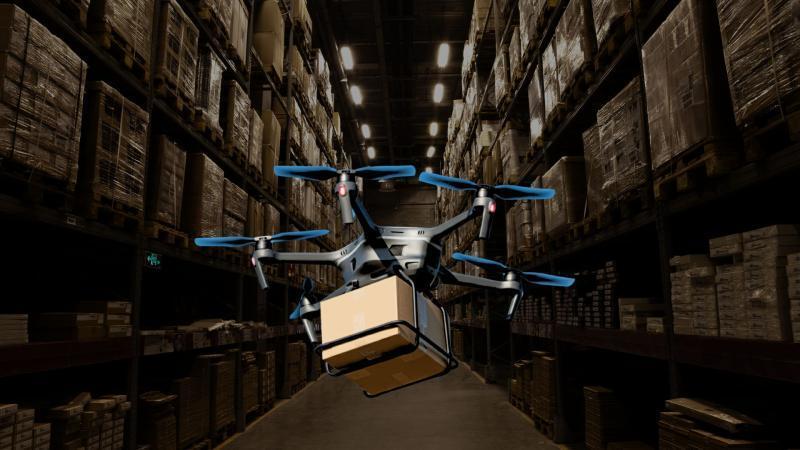
New Tech Optimizes Drone Fleets for Faster, Greener Deliveries
Imagine receiving your packages in a matter of minutes, with a smaller environmental footprint to boot. This futuristic scenario is closer to reality thanks to new research that addresses the Drone Warehouse Problem, a crucial logistics challenge that has been hindering the widespread adoption of drone delivery systems. A team of researchers has developed an algorithm that optimizes drone delivery schedules, allowing warehouses to efficiently manage varied drone fleets and ensure parcels reach customers quickly.
The Drone Warehouse Problem refers to the difficulty of managing multiple drones, each with its unique characteristics, such as speed, range, and capacity, within a limited warehouse space. This complexity makes it challenging for warehouses to schedule drone takeoffs and landings, leading to delays, increased costs, and reduced efficiency.
The researchers behind the new algorithm, published in a recent study, have developed a novel approach to tackle this problem. By using a combination of machine learning and optimization techniques, the algorithm can efficiently allocate drones to tasks, taking into account factors such as weather conditions, traffic, and package priority.
The algorithm, known as the Drone Fleet Scheduling Algorithm (DFSA), uses a genetic algorithm to generate a large number of possible drone schedules and then selects the most efficient one based on a set of predefined criteria. This approach allows the algorithm to explore a vast solution space and identify the optimal solution in a matter of seconds.
The benefits of the DFSA algorithm are twofold. Firstly, it enables warehouses to manage their drone fleets more efficiently, reducing the time it takes for packages to be delivered and increasing the overall productivity of the warehouse. Secondly, the algorithm can help reduce the environmental impact of drone delivery by optimizing the route taken by each drone, minimizing fuel consumption, and reducing noise pollution.
The potential applications of the DFSA algorithm are vast. Imagine a world where your packages are delivered to your doorstep in a matter of minutes, with a smaller carbon footprint than traditional delivery methods. This is not just a pipe dream; the DFSA algorithm has the potential to revolutionize the logistics industry and make it more sustainable.
The researchers behind the algorithm have already demonstrated its effectiveness in a series of simulations and real-world tests. In one test, the algorithm was able to reduce the delivery time of a package by 30% compared to traditional scheduling methods. In another test, the algorithm was able to reduce the number of drones required to complete a delivery task by 25%.
The development of the DFSA algorithm is a significant step forward in the quest for faster, greener deliveries. As the demand for e-commerce continues to grow, the need for efficient and sustainable delivery solutions has never been more pressing. The DFSA algorithm has the potential to play a key role in addressing this challenge and enabling the widespread adoption of drone delivery systems.
In conclusion, the DFSA algorithm is a game-changer for the logistics industry. By optimizing drone delivery schedules, it can help reduce the time it takes for packages to be delivered, increase the overall productivity of warehouses, and reduce the environmental impact of drone delivery. As the demand for e-commerce continues to grow, the need for efficient and sustainable delivery solutions has never been more pressing. The DFSA algorithm has the potential to play a key role in addressing this challenge and enabling the widespread adoption of drone delivery systems.
Source:
https://researchmatters.in/news/novel-algorithm-tackles-drone-warehouse-problem-faster-deliveries






